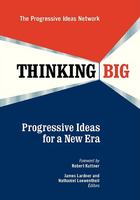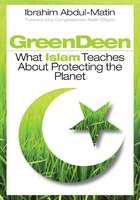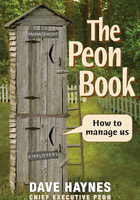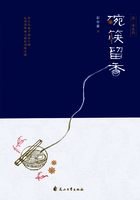Before launching into this work, I would like you to consider three terms. Although each term can be seen as a single, simple word, each one also carries a vast amount of meaning. What's more, these three terms are dramatically affecting our world today, and if we are to truly progress as human beings, we need to acknowledge, address, and radically alter the path they describe.
The first term I want you to consider is civilization, which is "the condition that exists when people have developed effective ways of organizing a society and care about art, science, etc."[1] Although the history of humanity goes back tens of thousands of years, it is only relatively recent by the historical clock that human beings have been dubbed civilized. Precise definitions have fluctuated over the years, but the majority agrees that being civilized refers to human societies having a high level of development in technological and cultural arenas. This is opposed to the state of being "primitive" or "belonging to or characteristic of an early stage of development."[2]
Within the context of the word civilization is the state of being civilized, or to be "polite, reasonable and respectful."[3] Civilized societies are cooperative by definition. It is commonly accepted by authorities that civilized humans (civilizations) first appeared around 7000-8000 BC. We are now well on our way into the twenty-first century AD. It stands to reason that if we have had nine to ten thousand years to practice and explore being civilized, then we should, today, be at a very advanced state of politeness, reasonability, and respectfulness. Unfortunately, that is not the case. In actuality, it appears that we as a civilization are regressing to a more primitive and reactionary mindset-reverting back to a period of "Dark Ages."
Take as an example the next word, stereotype, which is "to believe unfairly that all people or things with a particular characteristic are the same."[4] The term is more acutely defined in psychological circles as "a fixed, over generalized belief about a particular group or class of people."[5] Of course, not all stereotypes are intended to be hurtful and many are considered positive, like seeing obese people as "jolly," considering judges to be "sober," or believing that blonds "have more fun." However, it is far more common for people to focus on negative stereotypes such as Native Americans being "savage," people from Poland (Polacks) being "dimwitted," or persons living with HIV being "extremely contagious."
Stereotyping originated from a very advantageous form of behavior when civilized humanity was young. For example, judging that all cultural tribes that wore green facial paint were vicious and warlike served to prompt us to act quickly (based on previous experience of our own or those in our circle) when someone or something similar appeared to us. However, the tree of humanity, I believe, has experienced tremendous growth from its original civilized roots. Our world has exploded in technological, educational, scientific, and medical advances that cater to our civilized lifestyles. As a result of such advancements in modern civilization, we no longer have to fear such things as insufficient means of storing food, monthlong journeys on foot or horseback, or living in caves or flimsy structures. The problem is that in the midst of such advancements, the social aspect of our civilization is, at best, stagnant and, at worst, declining.
Tiya A. Miles, an American historian and professor at the University of Michigan, expounds, "Stereotypes are so powerful and resilient that they operate beyond the individual psyche to shape cultural currents and societal structures. Certain images have long operated in American culture as containers for a host of ideas that distort and belittle groups of people in ways that have material consequences."[6] Although great advances have been made over past centuries, decades, and years, stereotypical judgments about those we see or meet have become fixed in our consciousness, even if we choose not to act upon them. Stereotyping has branched into what we today call prejudice-"an unfair feeling or dislike for a person or group because of race, sex, religion, etc."-and discrimination-"the practice of unfairly treating a person or group of people differently."[7] In today's society, people are constantly favored or disfavored based on a variety of unfair judgments, many qualities of which were not chosen by them (for example, sex, ethnicity, age).
Stereotyping, prejudice, and discrimination no longer serve us as they might have many thousands of years ago. Such behaviors are now disadvantageous and work to drive divisions between social structures that are rapidly transforming into larger, united circles through globalization. As we are witnessing, these divisions are not helpful but harmful to the advancement of civilization because of unjust, untrue, and outright ignorant assumptions that are made by individuals about other people. Stereotypes, prejudices, and discriminations, therefore, serve only to disrupt the flow of social growth specifically and cause a breakdown in the stability of civilization in general. Thankfully, a growing number of people are coming to an understanding about the harmful effects of stereotyping and are moving away from such unfounded prejudices and discriminations when making individual assessments.
This brings me to the third term, which is a lesser known and acknowledged phenomenon that is taking place, although it has greater potential to threaten our civilization than stereotyping, prejudice, or discrimination. This final word is "stigma," and although related to the others, it tends to define civilization or society as a whole compared with the more individualistic form of stereotyping. Stigma is defined as "a set of negative and often unfair beliefs that a society or group of people have about something."[8] Stigmatization is broader in its effects than stereotyping because larger numbers of people adhere to negative and unfair beliefs. A few examples of stigma that continue to permeate our humanity are those that mark all people living in the mountains (hillbillies) as poor, white, ignorant, barefoot, and living in shacks; all whites as dominating and prejudiced; all Muslims as terrorists; all blacks as poor and lazy; or all Hispanics as associated with gangs that start riots and destroy entire neighborhoods. In all likelihood, these longstanding trends of stigma are at a critical point of destroying our entire nation and way of life.
Stigma, as we all know, can involve a deliberate attempt to mark the intended victim with a feeling of lower status or shame. One might encounter a prejudiced person and never know his inner thoughts if he keeps them to himself. However, one who "stigmatizes" intends to brand the other-either by words or deeds-thereby adding to its hurtfulness as a phenomenon.
To our shame as human beings, we are witnessing the negative results of our ever-festering stigmas, which are rising to an uncomfortable and dangerous regularity throughout the world. We are witnessing it in the United States, which is considered to be one of the most civilized nations on earth. We are witnessing it in Europe, which has centuries of experience more than the United States in civilizing its peoples. We are witnessing it in Russia, China, Australia, and practically every other country. Various groups, cultures, religions, media outlets, and even governments are busy fanning the flames of stigma, which have risen to feverish and destructive levels of assault on nations of people. Perhaps what we are witnessing is the result of our ignoring the stronghold of stigma that has festered for generations against individuals and groups of people. Perhaps it is due to the rapidity of globalization, merging together peoples from various religious, ethnic, linguistic, or other backgrounds. Regardless, these are not excusable reasons. However, if we are to progress as civilized human beings, we must quell the rise of stigma by actively addressing the issues, educating the masses, and coming together as one kind…humans.
This book addresses the ever-present and perpetual sting of stigma, how stereotypes develop, the processes and effects of stigma, the levels of intervention that are needed, the need and process to change cultural thinking regarding this subject, and practical ways that stigma can be managed to create a healthier and more fulfilling environment for all.














